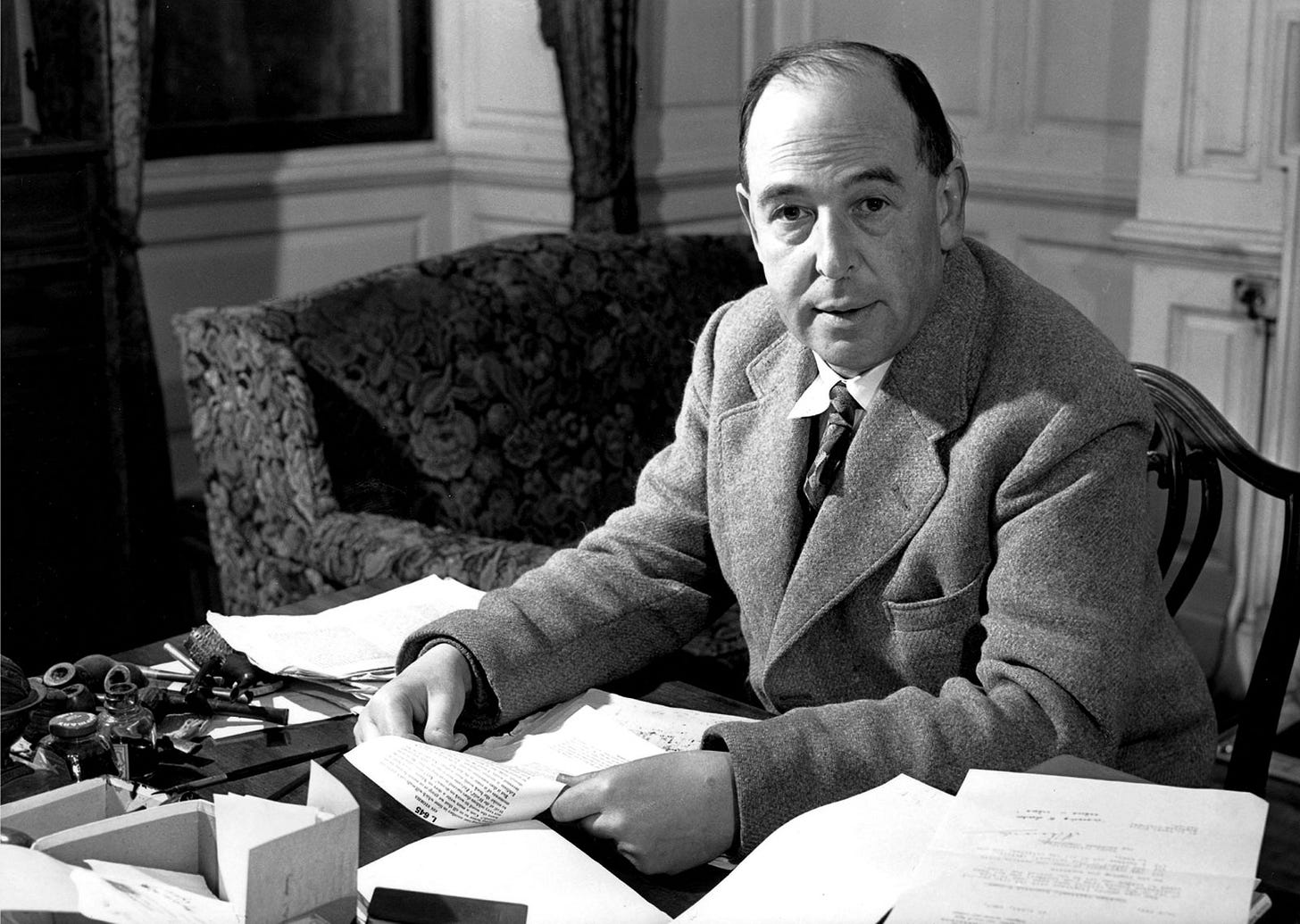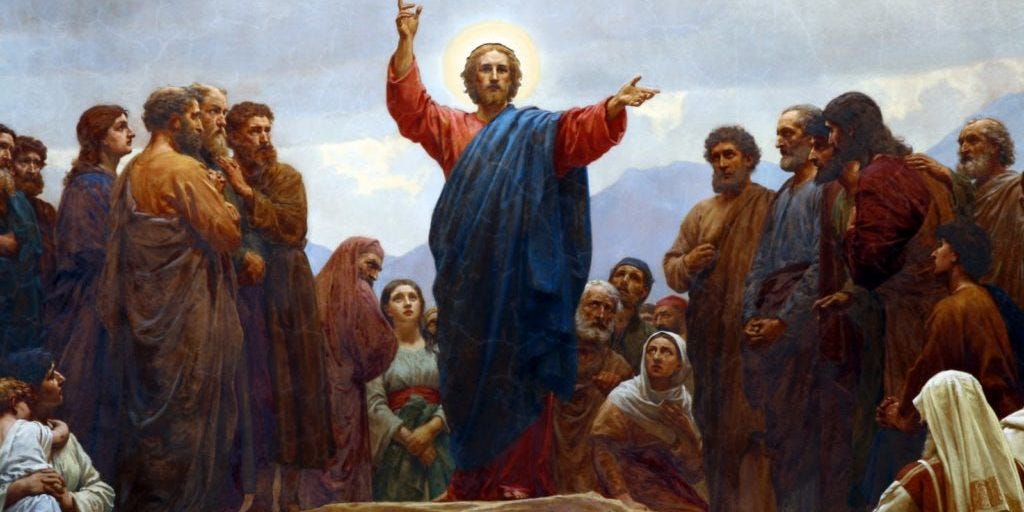Mediocrity
We Need The Lay Theologian

I have a confession to make: I am jealous of the lay theologian. A lay theologian is someone who is part of the laity, the general congregation of a church and not the ordained clergy. They are generally knowledgeable about theology and may even write, publish, and teach theology even at the university level. Examples in this department include such famed figures like C.S. Lewis, Soren Kierkegaard, and Fyodor Dostoevsky. Maybe you know of some of the modern names like Os Guinness. Despite the big names I just dropped, a lay theologian is not always an academic or well published, most of the time they are the humble saint in the pew. These are the people, I argue, we desperately need more of.
I am jealous because the lay theologian gets to be a theologian, that is, someone on a relentless pursuit of knowledge of the things of God, but is not encumbered by the duties of the pastorate. While every Christian is a minister, the specific vocation of the pastor often seeks to limit the theological pursuits of those in this field. Whether it is the years it takes to get through seminary, daily duties of ministering to the congregation, or writing sermons, often pastors do not get to do all they would like to do when it comes to studying the things of God.
Mediocrity of Vocation
This is why the lay theologian is so vitally important, and so needed on our churches. A few years ago, Pastor Voddie Baucham did a sermon called “The Sufficiency of Scripture in the Disciple-Making Ministry of the Church and the Home.” You can watch it in its entirety here, but it is pretty long. It is from was one of those Christian conferences, you know the kind, with long speeches and sermons. A five minute snippet of the sermon went viral as a video called “The Mediocrity of Christian Men in America,” it is only about five minutes long, if you have the time, watch it below and then rejoin me, it will frame many of the things I discuss from here on.
To quickly summarize the viral snippet, Pastor Baucham talks about how the Church in America is, at times, rabidly anti-intellectual. He says, “in our culture, we will not tolerate biblical, spiritual, and theological maturity in men.” If any man, he argues, is learning church history, theology, or is even mature about their faith, we automatically tell them to “get away from us” and go to seminary, destined for pastor-dom. They are not welcome here among us regular people in the pews. This knowledge; about the Bible, church history, or doctrine - if you are passionate about learning it - is only for the preacher or the priest, so it goes that must be what you’re called to be. No one else would actually want to deeply know the things of God, right? In one way, this is a rehash of the age old false dichotomy of secular vs. sacred. In consequence, we are killing off the lay theologian.
I admit, I disagree with Pastor Baucham here in a couple of ways. I think we increasingly do this to both men and women. Looking at the covenant of marriage, we simply no longer expect parents, either the man or the woman, to catechize their children. They both should be actively involved in their children’s Christian education. And for women, specifically in churches that ordain women, we do the exact same thing as what Baucham references, sending women off to seminary to be pastors if they simply have a passion for doctrine, theology, etc. Even in churches that do not ordain women, the same thing is done with their young women, but then they restrict the “call” they have created for them with a call to “children’s ministry” or “women’s ministry.”
To Make Disciples
What is the result of all of this? We have children who grow up with little biblical knowledge gained from their parents, and ministers pastoring churches who are not called to it. No wonder our nation is in a spiritual crisis! But on top of all of that, we have a considerable lack of wise men and women, the lay theologians, in our pews.
Maybe for me this is a bit of a lament as well. I was not raised in a catechized Christian household. When I finally stumbled into the church, there was no sage or older disciple around who would or even could pour into me until I sought that out on my own several years later. In fact, I found older people in the church who taught me things about their favorite fandoms - Marvel Comics, Star Wars, Georgia Bulldogs football, and 80’s rock music - before I found people who would teach me, or even discuss with me, Christian theology, doctrine, and the Church. How is it that we have more Christians who can tell you the date of Spider-Man’s first appearance in Marvel Comics or the stats of a football player in the 1985 season than can share about basic truths about God and the Church?
But it ought not be that way. Young disciples of Jesus deserve the lay theologian, the older man or woman who they can go to who knows something about church history, theology, doctrine, and polity. Maybe we have created a lie we have believed too long that passion for God and the Church is to be restricted to seminary and people who are ordained, but we need to move away from that mindset, quickly.
Why You Should Be A Lay Theologian
I believe this call is for you, reader, who does not have a call to vocational, ordained ministry. Every person in a pew is called to know their Bibles, the Church, and God. That is what being a theologian is all about - knowing your Bible, the Church, and God. It really is that simple.
If we want a church that does not concede ground to the culture, that stands firm in the faith, and raises new generations of disciples of Jesus, then we need to begin to expect more of ourselves as disciples. We must have something to give. We also must expect that God will grow us in understanding and equip us. It is not a matter of simply studying these topics hard and having read all the right books. It is the Holy Spirit that leads us into understanding.
Why would we not do this? Why would anyone who calls themselves a Christian not want to know more about the things of God and His bride, the Church? This is a challenging question, but maybe it reveals something about our priorities, passions, and desires. Maybe we haven’t given them completely over to God.
This was something that the Jewish people have gotten right at various times in their history. In many Jewish communities of Jesus’ day, people were expected to know their Torah and everyone the importance of their religious observances. Jesus himself, the one we are to imitate (1 Corinthians 1:11, Ephesians 5:1), did as well.
Yeshua’s [Jesus] participation in local synagogue worship and custom was his usual activity. Yeshua was educated in the Torah in his local synagogue. As every Galilean Jew, Yeshua learned the Torah—how to read it, memorize it, and its principles and customs, from both his family and his local synagogue. It was part of his life as a Jew.1
Pastor Baucham is right that we should not expect pastors and ordained clergy to be the sole theologians of the local church. In fact, as someone training for the ministry, it nearly scares me to death to think I may not have lay theologians equipped to make disciples in whatever congregations I end up serving. It is a duty of every disciple to disciple others, to “teach all that Jesus has commanded.”2 That’s the Great Commission.
“For whatever was written in the past was written for our instruction, so that we may have hope through endurance and through the encouragement from the Scriptures.” - Romans 15:4 (CSB), emphasis my own
So let’s do it. Let’s transform the world. Whaddya say, you with me?
David Friedman, They Loved the Torah: What Yeshua’s First Followers Really Thought about the Law (Baltimore, MD: Messianic Jewish Publishers, 2001), 36, emphasis and brackets my own.
Matthew 28:20



